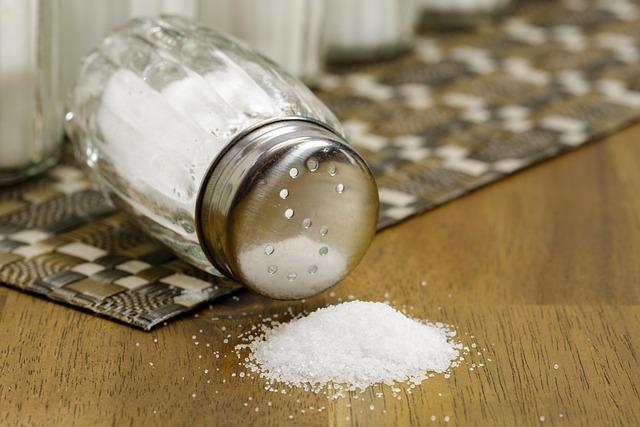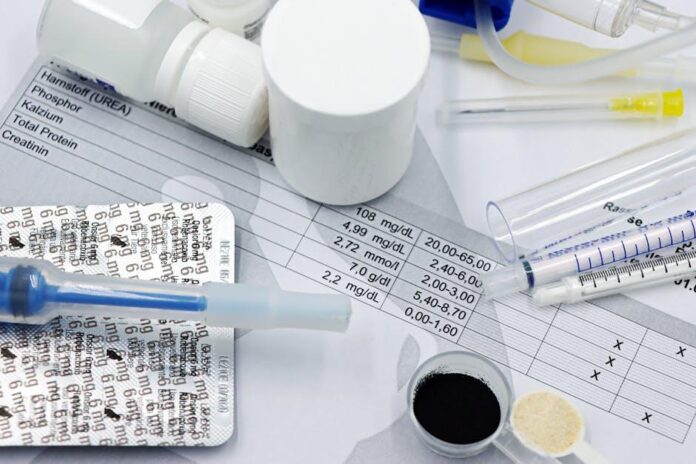In the ever-evolving landscape of health and wellness, the ketogenic diet has carved out a significant niche, celebrated for its potential benefits in weight management and metabolic health. Yet, while manny have embraced the low-carb lifestyle, an often-overlooked aspect lurks in the shadows: the delicate balance of electrolytes. Sodium, potassium, and magnesium—three essential minerals that play a vital role in bodily function—are particularly crucial for those navigating the keto journey. As our bodies adapt to this new state of ketosis, the dynamics of electrolyte levels can shift dramatically, leading to potential imbalances and discomfort. in this article, we will explore the importance of electrolyte keto supplements, the roles of each mineral in the body, and how to maintain a harmonious balance for optimal health. Whether you’re a seasoned keto enthusiast or just starting,understanding the science behind these electrolytes can empower you to thrive on your nutritional journey.
Understanding the Role of Sodium, Potassium, and Magnesium in Keto Diets
Electrolytes play a pivotal role in maintaining optimal body function, especially when following a ketogenic diet. When the body enters ketosis, it tends to excrete more sodium, potassium, and magnesium due to reduced insulin levels and changes in water retention. this increased loss can lead to deficiencies, which may cause a variety of symptoms such as fatigue, muscle cramps, and headache, often referred to as the ”keto flu.” Thus, understanding and replenishing these key electrolytes is essential for anyone looking to thrive on a keto regimen.
To ensure a balanced intake of these vital minerals, consider the following strategies:
- Increase Sodium Intake: incorporating salt into meals or enjoying broth can help replenish lost sodium.
- Focus on Potassium-Rich Foods: Foods like avocados, nuts, and leafy greens are excellent sources of potassium that can support heart and muscle function.
- Don’t Forget Magnesium: Nuts, seeds, and dark chocolate can provide necessary magnesium that aids in relaxation and muscle recovery.
| Electrolyte | Function | Sources |
|---|---|---|
| Sodium | Regulates fluid balance, nerve function | Sea salt, bone broth, pickles |
| Potassium | Supports muscle contractions, heart health | Avocados, spinach, mushrooms |
| Magnesium | Contributes to energy production, muscle relaxation | Nuts, seeds, dark leafy greens |

The Importance of Electrolyte Balance for Optimal Keto Performance
maintaining a proper balance of electrolytes is crucial for those following a ketogenic diet. As the body enters ketosis, it begins to utilize fat for fuel, leading to a natural diuretic effect that can often result in the loss of vital minerals. Without adequate replenishment, individuals may experience symptoms of “keto flu,” such as fatigue, muscle cramps, and dizziness. To combat these issues, ensuring an appropriate intake of sodium, potassium, and magnesium is essential, as they play a significant role in various bodily functions including muscle contraction, nerve transmission, and hydration.
Integrating the right electrolyte supplements can provide significant benefits for optimal performance on a keto diet. As an example, a blend of sodium ensures fluid retention, while potassium enhances muscle function and heart health. Additionally, magnesium is vital for energy production and maintaining stable blood sugar levels. Including these essential minerals in your diet can lead to improved endurance, reduced fatigue, and an overall better experience on your keto journey. Consider including the following in your supplement regime:
- Sodium: supports hydration and nerve function.
- Potassium: Helps prevent muscle cramps and regulates heartbeat.
- Magnesium: aids in energy production and decreases fatigue.

Choosing the Right Electrolyte Keto Supplement for Your Needs
When selecting an electrolyte supplement tailored to a ketogenic lifestyle, it’s crucial to consider the specific needs of your body and your dietary restrictions. Sodium, potassium, and magnesium are the pivotal trio of electrolytes that play significant roles in maintaining optimal health while on a low-carb diet. Here are a few essential factors to keep in mind:
- ingredient Quality: Opt for high-quality,natural ingredients. Look for options that avoid artificial additives or unnecessary fillers.
- Balance Ratio: Select a supplement with the right balance of electrolytes. An effective ratio of sodium, potassium, and magnesium can help manage muscle cramps and support hydration.
- Form: Decide whether you prefer powders, capsules, or ready-to-drink solutions based on your convenience and ease of use.
- taste: Some electrolyte supplements come in flavored versions. A pleasant taste can make it easier to incorporate them into your daily routine.
Additionally, understanding your personal activity level and health goals can guide your choice.For individuals engaging in intense workouts or those who sweat heavily, a product with higher sodium content can help replenish losses effectively. Conversely, if you’re looking to regulate blood pressure or minimize sodium intake, a balanced formula with a higher proportion of potassium might potentially be preferable. To facilitate your decision, here’s a comparison table of some popular electrolyte supplements:
| Product | sodium (mg) | Potassium (mg) | Magnesium (mg) |
|---|---|---|---|
| Electrolyte Mix A | 300 | 200 | 100 |
| Electrolyte Mix B | 500 | 150 | 75 |
| Electrolyte Mix C | 200 | 300 | 120 |

Practical Tips for Maintaining Electrolyte Levels on a Ketogenic Journey
Staying hydrated and maintaining electrolyte balance is crucial on a ketogenic diet, as the body transitions from carbohydrate dependence to fat burning. Here are some practical tips to help manage sodium, potassium, and magnesium levels effectively:
- Incorporate Salt: Don’t shy away from adding salt to your meals.Opt for quality sea salt or Himalayan pink salt,which can enhance both flavor and mineral intake.
- Focus on Low-carb Vegetables: Vegetables like spinach, kale, and avocados are not only nutritious but also rich in potassium, supporting your overall electrolyte balance.
- Stay Hydrated: Drink plenty of water, but add electrolytes to your hydration routine. Consider using electrolyte powder mixes or mineral drops to enhance water with essential nutrients.
- Foods High in Magnesium: Include magnesium-rich foods such as almonds, pumpkin seeds, and dark chocolate in your diet to help prevent muscle cramps and fatigue.
Another way to ensure adequate intake is to monitor your body’s signals. Common signs of electrolyte imbalances may include fatigue, muscle cramps, and headaches. Creating a well-rounded focus can alleviate these issues:
| Electrolyte | Recommended Sources | Daily Intake (mg) |
|---|---|---|
| Sodium | sea salt, Pickles, Soup Broth | 1500-2300 |
| Potassium | Avocado, Spinach, Mushrooms | 3500 |
| Magnesium | Almonds, Pumpkin Seeds, Dark Chocolate | 400-420 |
Future Outlook
In the quest for optimal health and wellness on a ketogenic journey, striking the right electrolyte balance is crucial. Sodium,potassium,and magnesium each play vital roles in maintaining bodily functions and ensuring that the transition to ketosis is as smooth as possible. As we’ve explored, electrolyte keto supplements can be a valuable ally in this endeavor, helping to ward off the dreaded “keto flu” and support overall vitality.
Though, it’s essential to remember that supplementation is not a one-size-fits-all solution. Each individual’s needs may vary based on thier diet, activity level, and personal health goals. By being mindful of your body’s signals and taking a tailored approach to supplementation, you can harness the benefits of an electrolyte-rich regimen.
As you navigate the complexities of the ketogenic lifestyle, consider integrating these electrolytes thoughtfully into your daily routine. In doing so, you’re not just enhancing your physical well-being; you’re empowering yourself to thrive on this transformative path. Here’s to embracing balance, vitality, and a healthier future, one electrolyte at a time.






